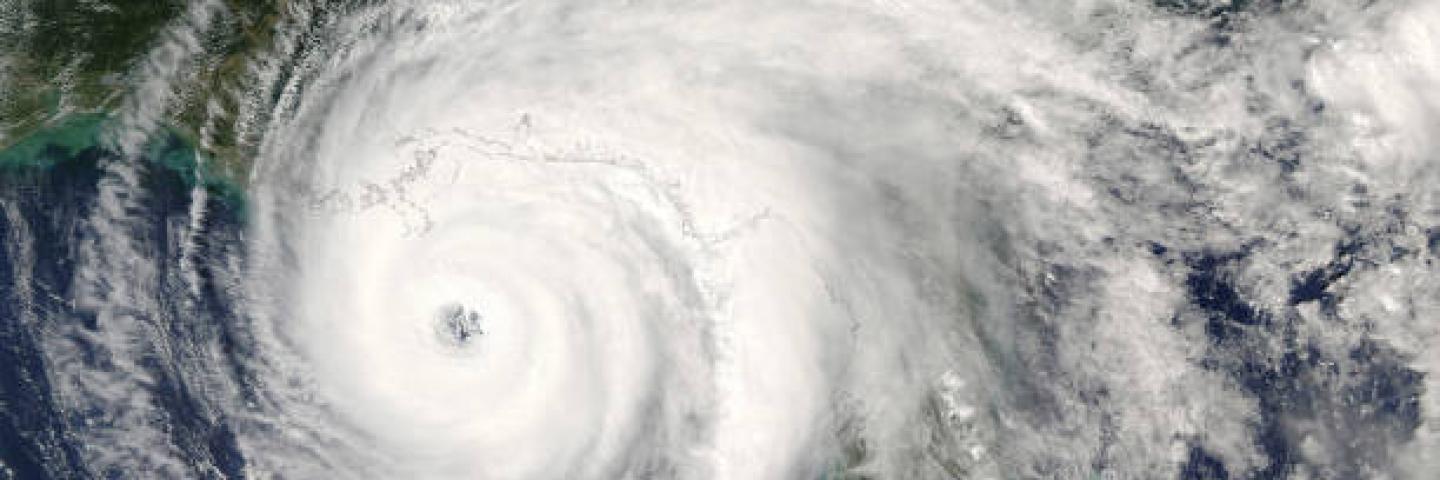Disaster Recovery Assistance

North Carolina (NC) is no stranger to natural disasters, and with Hurricane Fiona moving through the Atlantic, it’s a reminder that the 2022 hurricane season is still ongoing. It’s important to know that residents of the state are not without options for relief after a disaster.
RALEIGH, N.C., September 19, 2022 –North Carolina (NC) is no stranger to natural disasters, and with Hurricane Fiona moving through the Atlantic, it’s a reminder that the 2022 hurricane season is still ongoing. According to the National Oceanic and Atmospheric Administration (NOAA), there is a 65% chance of above normal season. The peak of the season ranging from mid-August to mid-October. It’s important to know that residents of the state are not without options for relief after a disaster. The U.S. Department of Agriculture (USDA) Natural Resources Conservation Service (NRCS) offers several opportunities for assistance.
The Emergency Watershed Protection (EWP) Program, a federal disaster recovery program, helps local communities restabilize watersheds after a natural disaster strikes. The program offers technical and financial assistance for local communities to relieve imminent threats to life and property caused by floods, fires, windstorms, and other natural disasters that can impair watersheds.
The purpose of the EWP program is to enable Sponsors to undertake emergency measures to safeguard lives and property from floods, drought, and erosion on any watershed whenever fire, flood or any other natural occurrence is causing or has caused a sudden impairment of the watershed.
In North Carolina, virtually all EWP work is completed by locally led agreements between NRCS and the local sponsors (i.e., eligible sub-units of state/local government including tribes). Because of this requirement, producers and landowners are encouraged to coordinate with their local emergency management agencies to explore potential recovery assistance options. Additionally, NRCS offers potential floodplain easement purchases through the EWPP-Floodplain Easement program.
The Emergency Watershed Protection - Floodplain Easement (EWPP-FPE) program offers an alternative method to the traditional EWP Program Recovery. NRCS recommends this option to landowners and sponsors when acquiring an easement and converting the lands back to a functioning flood plain is the best approach because it may be more economical and prudent to reduce threat to life and/or property.
NRCS can also assist impacted communities and individuals by providing site consultations to help them repair damaged farms and ranches. NRCS conservationists and resource specialists are available to develop conservation plans for mitigating and repairing disaster-induced resource concerns including soil erosion, water and drainage controls, bank stabilization, and more. The goal of the technical assistance is to make it personalized in terms of advice and information, relying on the most recent scientific data and research available.
“North Carolina is very innovative and supportive of NRCS’ EWP program; NRCS has a unique partnership agreement with the N.C. Department of Agriculture & Consumer Services and NC soil and water districts to assist NRCS, sponsors, and landowners with EWP post-disaster site assessments and planning. In addition, North Carolina supports EWP sponsors with financial assistance; it’s a great example NRCS and our partners empowering locally led disaster recovery and conservation,” said Dr. Jim Kjelgaard, State Conservation Engineer.
North Carolina was actively involved with communities and partners’ recovery efforts in western North Carolina due to flooding from Tropical Storm Fred. Currently, Tropical Storm Fred have 111 DSRs that are funded at $9.3 million. In addition, NRCS is supporting 45 EWP agreements across several events: Hurricane Florence, Hurricanes Zeta/Eta, and the Graham County Flood. The agreements represent over 200 EWP sites where recovery will be addressed through EWP projects.
“The investments provided through EWP allows communities to address damages to infrastructure and the land, which becomes part of the long-term success of disaster relief,” Tim Beard, State Conservationist for NRCS in North Carolina.
Producers and landowners are encouraged to contact their local NRCS office for more information. For more ways to see how NRCS assists in disaster recovery visit Disaster Recovery Assistance.
NC-NRCS also provides other assistance through voluntary programs to eligible landowners and agricultural producers to provide financial and technical assistance to help manage natural resources in a sustainable manner. Through these programs, the agency approves contracts to implement conservation practices that addresses natural resource concerns or opportunities to help save energy, improve soil, water, plant, air, animal, and related resources on agricultural lands and non-industrial private forest land.
USDA touches the lives of all Americans each day in so many positive ways. To learn more, visit usda.gov.
#
USDA is an equal opportunity provider, employer and lender.

